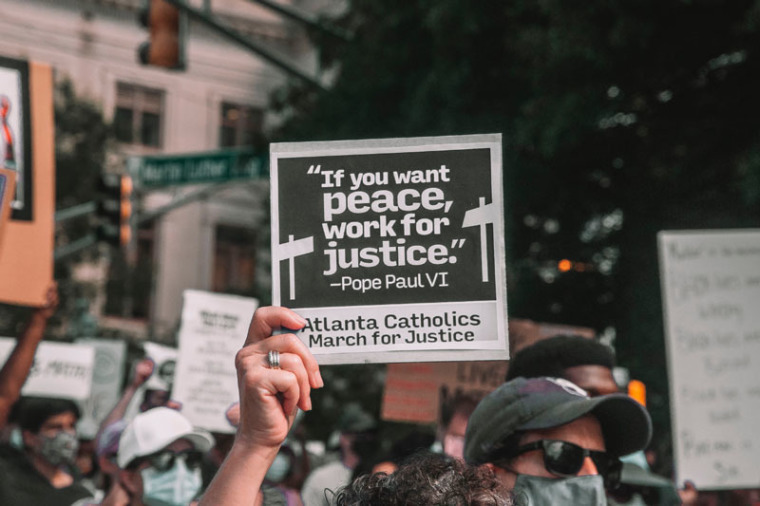
I once heard it said that the role of government is to aid in the spreading of the Gospel. That the security it provides goes towards this and that ultimately all states are working according to God's plan. While I believe this to be true I want to explore these ideas somewhat, and set forward some 'food for thought'.
Most people in Australian society hold the view that Church and State should be separate. This in many ways links back to enlightenment ideology and the French Revolution in 1789. Voltaire's a Treatise on Toleration criticised the church in its use of power. At that time, it was easy for high ranking members of the Roman Catholic Church to abuse the power they had.
They could for any reason (or undisclosed reasons) remove a person's influence by simply setting out the inquisition. One had no defence against such things "...you will have no advocate to defend you... different tortures will be applied to you" (Voltaire 1763, in Woolf, H.I. 1923, p.132) and in some cases the death penalty was given without trial. Enlightenment writers generally desired to remove "...the chains of ignorance and error, superstition, and theological dogma..." (Grell, O. P. Porter, R. 2000 Toleration in Enlightenment Europe, p.5).
Some of them seem to have believed that religion is somehow contradictory to science, a view I do not share. Bundling together the ideas of ignorance, superstition and religion as anti-progress, the French Revolution acted on a secularising agenda in France.
Government
Can a government that is separated from Christian ideals 'aid the spread of the Gospel'?
In the Gospel according to Matthew, Jesus said "All authority on heaven and earth has been given to me..." (Matthew 28 verse 18b). Perhaps it is: despite holding anti-religious sentiment, the government aided the spread of the Gospel by providing security for its people (after the Terror and other turbulences). Therefore allowing people opportunity to meet freely and converse about God.
However, this was not strictly true; the Government of France oppressed most religious expression, in effect, reducing the security of those engaged in spreading the Gospel. Yet, here is another question, often people remember God in their times of need. As Psalm 107 states "Then they cried out to the LORD in their trouble, and he delivered them from their distress" (Verse 6).
God works in every situation and he is in control, even in the hard times he is active; but I do not think we should wish turmoil for the sake of God's gospel. To wish the removal of security is akin to desiring another's suffering, and that certainly seems contrary to the commandment that we are to "Love your neighbour as yourself" (Luke 10 verse 27, Deuteronomy 6 verse 5).
So it would appear better to desire security for others, but what if that security comes from the hands of an unjust ruler? Is this a time when Revolution is justified?
Two ideas
At the time of the French Revolution two ideas were conflicting in some of their aspects. There were those who believed in the 'Devine Right of Kings' where the king's rulership is just because he is there according to God's plan; and others who came to the view of a social contract which holds the idea that a ruler must benefit the people (particularly developed by Thomas Hobbs, John Locke and Jean-Jacques Rousseau).
While these points of view are not fully excluding of one another, the latter view more easily agrees with revolution and the forced replacement of kings. Considering the first view however, perhaps one could say that Kings ultimately belong to God, but in a similar way to how we do. In the sense that despite belonging to God we are still sinful; God took us out from what were, to be honest, evil ways.
In that way, the evil acts of kings are sin, but that is not a clear, sufficient reason for revolution. Despite people's sin, we are called not to judge others. Jesus said "Be merciful, just as your Father is merciful." (Luke 6 verse 36) and given our own sin; "Can a blind man lead a blind man? Will they not both fall into a pit?" (Luke 6 verse 39b). As such, revolution does not always seem to be wise.
Concluding this article, it is clear that Revolution and Government are complicated in their relation to the spreading of the Gospel. Hopefully this article has given the reader some considerations on the topic and explained some of its roots in the French Revolution and Enlightenment ideology.
However, there are many questions and issues not discussed here, and so I encourage you to look further, but particularly in the Bible because the theological aspects of this article are the most important.

Alexander Gillespie is an Arts Honours graduate of the University of Sydney. Particular fields of interest include Nineteenth-Century migration history, conceptual philosophy, social policy and ecclesiology. He currently lives in Sydney with his wife and enjoys researching and writing.